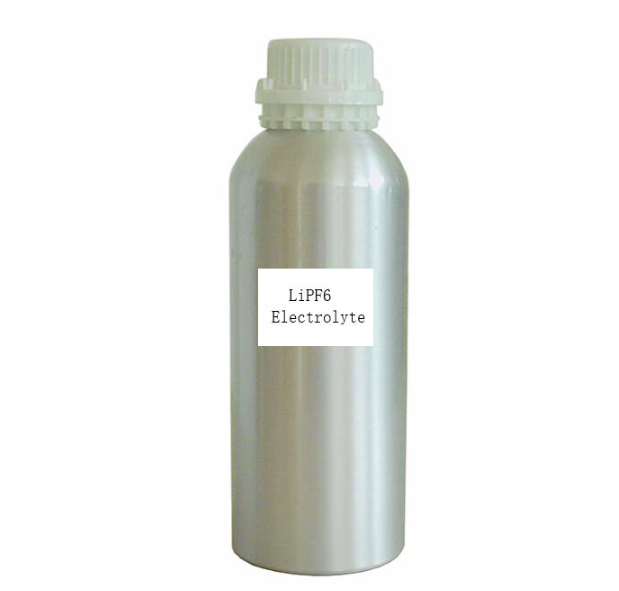-
Call Us
0086-592-7161550 -
Email us
ping@aotbattery.com -
Skype
ping@aotbattery.com
Call Us
0086-592-7161550Email us
ping@aotbattery.comSkype
ping@aotbattery.comThe Critical Role of Electrolytes in Battery Performance
1. Introduction
2. The main components of battery electrolytes typically include
3. Key functions of battery electrolytes
4. When selecting a battery electrolyte, several factors need to be considered
1. Introduction
Electrolyte refers to a substance that contains free ions and is able to conduct electricity when dissolved in a solvent, such as water or an organic solvent. In the context of batteries, an electrolyte is a component that enables the movement of ions between the anode and the cathode during the charging and discharging cycles. It physically separates the electrodes while allowing the transfer of ions, thus enabling the electrochemical reactions that power the battery. Electrolytes can be liquid, solid, or gel-like, depending on the specific application and requirements of the battery.
Battery electrolytes play a crucial role in the performance and efficiency of batteries. They facilitate the movement of ions between the electrodes during charging and discharging cycles. The composition of battery electrolytes varies depending on the type of battery, but generally, they consist of several key components.
2.The main components of battery electrolytes typically include
1).Solvents:
Solvents are used to dissolve the electrolyte salts and create a conductive solution. Common solvents include organic carbonates such as propylene carbonate (PC), ethylene carbonate (EC), dimethyl carbonate (DMC), and ethyl methyl carbonate (EMC). These solvents have high solubility for electrolyte salts and excellent electrochemical stability.
2).Electrolyte Salts:
Electrolyte salts provide the ions that participate in the electrochemical reactions in the battery. For lithium-ion batteries, lithium salts such as lithium hexafluorophosphate (LiPF6) are commonly used. Other lithium salts like lithium perchlorate (LiClO4) and lithium tetrafluoroborate (LiBF4) may also be employed, depending on the specific requirements of the battery.
3).Additives:
Additives are incorporated into the electrolyte to enhance its performance and safety. These additives can serve various functions, such as improving the wettability of the electrodes, increasing the ionic conductivity, preventing electrolyte decomposition, and improving the battery's thermal stability. Common additives include vinylene carbonate (VC), fluoroethylene carbonate (FEC), and various ionic liquids.
The composition of the battery electrolyte is tailored to meet the specific requirements of the battery, such as voltage range, energy density, cycle life, and safety. The choice of solvent, electrolyte salt, and additives depends on factors like the battery chemistry, operating conditions, and desired performance characteristics.
In summary, battery electrolytes consist of solvents, electrolyte salts, and additives that work together to facilitate ion transport and enhance the performance and safety of the battery.
3.Key functions of battery electrolytes
Battery electrolytes play a vital role in the operation and performance of batteries. They serve as the medium that allows the flow of ions between the electrodes during charging and discharging cycles. Here are the key functions of battery electrolytes:
1).Ionic Conduction: Electrolytes facilitate the transport of ions from one electrode to the other. During discharge, they deliver ions from the anode to the cathode, while during charging, they do the reverse. This ionic conduction is essential for the electrochemical reactions that power the battery.
2).Separation of Electrodes: Electrolytes physically separate the anode and cathode, preventing direct contact between them. This separation ensures that electrons flow only through the external circuit, generating an electrical current.
3).Thermal Stability: Good electrolytes maintain their properties and stability even under varying temperature conditions. This ensures reliable performance and safety of the battery.
4.When selecting a battery electrolyte, several factors need to be considered

1).Battery Chemistry: The choice of electrolyte depends on the battery chemistry. Different battery chemistries require different electrolytes that are compatible with their materials and operating conditions.
2).Voltage Range: The electrolyte must be stable within the operating voltage range of the battery. Electrolytes that decompose or react with the electrodes under high voltages can damage the battery.
3).Ionic Conductivity: The electrolyte should have high ionic conductivity to minimize ohmic losses and improve battery efficiency.
4).Chemical Stability: The electrolyte should be chemically stable and resistant to decomposition or reactions with other battery components.
5).Cost and Availability: Cost and availability are also important considerations in selecting an electrolyte. Cost-effective and readily available electrolytes are preferred for commercial applications.
In summary, battery electrolytes play a crucial role in the operation and performance of batteries. When selecting an electrolyte, it is important to consider factors like battery chemistry, voltage range, ionic conductivity, chemical stability, cost, and availability to ensure optimal performance and safety of the battery.

Tel/Whatsapp: 0086-592-7161550

Scan to wechat:
